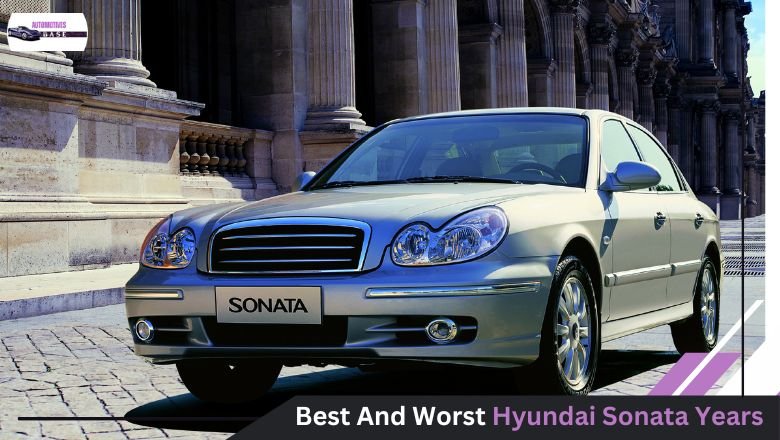The Hyundai Sonata has been a staple in the midsize sedan market for decades, but not all model years are created equal. The best and worst Hyundai Sonata years across all generations will help you make an informed decision when choosing your next ride.
Hyundai Sonata top years for purchase and those to steer clear of are identified. Our analysis draws on reputable sources such as NHTSA, Consumer Reports, and J.D. Power to provide a meticulous breakdown. By sifting through extensive data, the most reliable and least dependable model years of the Sonata are identified. Our thorough research process ensures precision and timeliness in our assessments.
I will specifically focus on the powertrain options, safety features, technology integration, reliability ratings, frequently reported issues by owners, and recall history for each Hyundai Sonata model generation.
Hyundai Sonata Generations
The Hyundai Sonata has been a leading mid-size sedan since its introduction in 1985. From 1999 onwards, the sonata has undergone significant advancements across its 4th to 8th generations. Each generation brought notable improvements in design, technology, and performance. The Sonata continues to be a strong contender in the market, showcasing Hyundai’s commitment to innovation and excellence.
| Generation | Year |
|---|---|
| 4th generation (EF/EF-B) | 1999-2005 |
| 5th generation (NF) | 2006-2010 |
| 6th generation (YF) | 2011-2014 |
| 7th generation (LF) | 2015-2019 |
| 8th generation (DN8) | 2020-Present |
It is essential to analyze the generational evolution of the Hyundai Sonata in order to grasp its development, emphasizing the notable advancements and enhancements that play a key role in shaping consumer choices.
Hyundai Sonata Best, Neutral, and Worst Years
When evaluating the best and worst model years for the Hyundai Sonata, several factors must be considered. The best years for Hyundai Sonata are typically those with strong reliability ratings, good fuel efficiency, and advanced technology features. The worst years may have issues such as frequent mechanical problems or safety concerns.
- Data from various sources, such as owner surveys
- Maintenance costs
- Safety ratings
- Consumer satisfaction scores
- Information from Consumer Reports
- NHTSA recalls
- Edmunds owner ratings
- JD Power owner ratings
- Kelley Blue Book (KBB) owner ratings
- Vehicle history owner ratings
- Cars.com owner ratings
Presented below is a comprehensive chart that consolidates all evaluations and feedback from the previously mentioned outlets for the Hyundai Sonata.
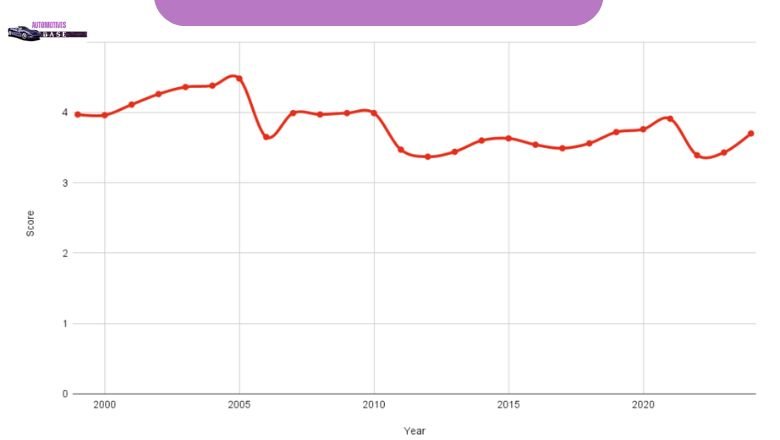
Following this, we have organized each year of the Hyundai Sonata models into three distinct categories within the table, best, worst, and neutral years.
| Generation | Best Years | Neutral Years | Worst Years |
|---|---|---|---|
| 4th generation (EF/EF-B) | 2004 2005 | N/A | 1999 2000 2001 2002 2003 |
| 5th generation (NF) | 2009 2010 | 2008 | 2006 2007 |
| 6th generation (YF) | 2014 | N/A | 2011 2012 2013 |
| 7th generation (LF) | 2018 2019 | N/A | 2015 2016 2017 |
| 8th generation (DN8) | 2020 2021 2024 | 2023 | 2022 |
Neutral Years for the Hyundai Sonata are characterized by a balance between performance and reliability. These years typically do not have major issues or standout features.
When evaluating neutral years for the Hyundai Sonata, it is important to consider customer reviews and feedback to get a comprehensive understanding of its performance.
Hyundai Sonata Best And Worst Years, 4th Generation (1999–2005)
The fourth-generation Hyundai Sonata, introduced in 1999, marked the best for the brand’s global image, with a renewed emphasis on design and technology. In this generation, the model years of 2004 and 2005 stand out as the best in terms of performance, reliability, and overall value.
These years saw significant improvements in features and engineering that garnered praise from critics and consumers alike.
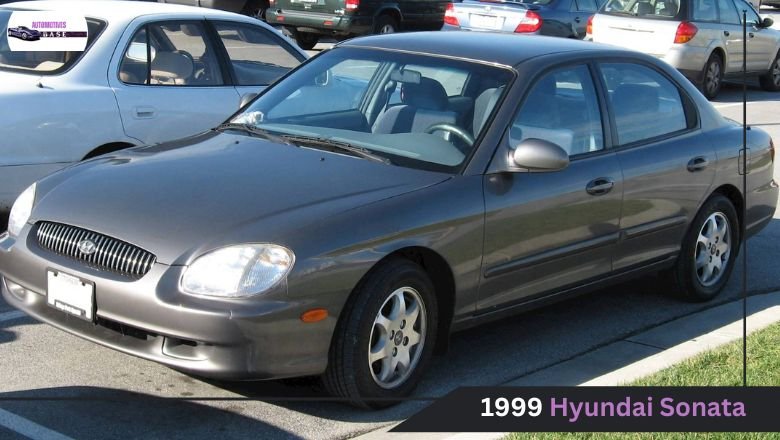
The initial model years from 1999 to 2003 are considered to be less favorable due to various issues such as reliability concerns and outdated technology.
Best Hyundai Sonata Years: 2004, 2005
The 2004 and 2005 are hailed as the Hyundai Sonata best years for the fourth-generation lineup. With a choice between a 2.7L V6 or a 2.4L I4 engine, drivers could experience a blend of power and fuel efficiency in these vehicles. The V6 engine boasted an average of around 20 MPG combined, while the Inline-4 offered slightly better fuel economy.
Transmission option of a smooth-shifting 4-speed automatic or a more engaging 5-speed manual gearbox. These choices gave drivers the flexibility to tailor their driving experience to their preferences.
During these years, manufacturers made significant improvements to the cabin features of their vehicles. This included using higher quality materials and installing more sophisticated audio systems. Advanced safety features, like side airbags, were added to enhance passenger protection. Improved crash test ratings also indicated increased safety standards in these models.
The Worst Years: 1999, 2000, 2001, 2002, 2003
The early years of the fourth-generation Sonata, 1999–2003, were troublesome due to various reliability issues. The 1999 and 2000 Hyundai Sonata models suffered from engine cradle corrosion, transmission problems, and engine stalling during low-speed driving. These issues caused significant headaches for owners and dented Hyundai’s reputation for quality.
The 2001 model year didn’t bring much relief as it introduced new problems such as camshaft position sensor failures and easily rusted brake lines. This string of issues tarnished Sonata’s image as a dependable midsize sedan on the market.
The 2002 and 2003 Hyundai Sonatas faced a recurring challenge with sub-frame corrosion, a problem that had significant repercussions on steering functionality. This issue persisted over both model years, putting drivers at risk of encountering handling difficulties. Issues with engine stalling in the 2.5L V6 variants during this period.
Best And Worst Hyundai Sonata Years, 5th Generation (2006–2010)
The fifth generation of the Hyundai Sonata, launched in 2006, shows advancements in both design and construction quality, highlighting Hyundai’s increasing competitiveness in the midsize sedan market.
The years 2009 and 2010 stood out as the peak years for the Hyundai Sonata in this generation, with notable improvements in performance, features, and overall reliability.
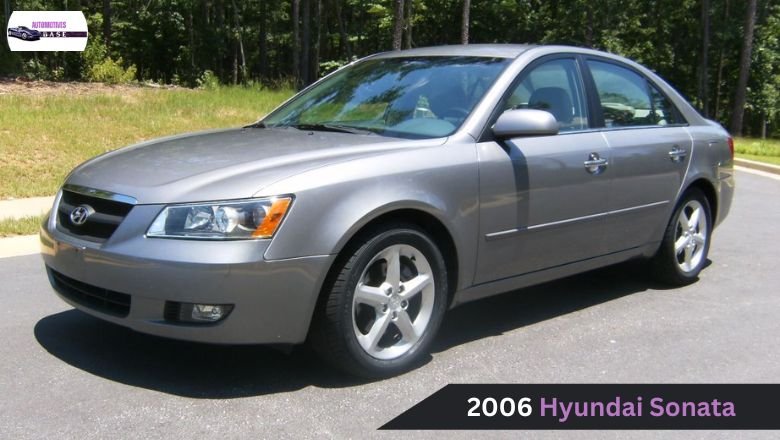
The 2006 and 2007 models, which were deemed the weakest within the fifth-generation Hyundai Sonata lineup due to a reported issue with technology.
The Best Years: 2009, 2010
The Hyundai Sonata entered its prime during the years 2009 and 2010 of this generation. The engine choices available in these years were impressive, catering to different driving preferences and needs. The 2.4L I4 engine provided reliable performance, while the 3.3L V6 offered a more exhilarating ride for those seeking a spirited driving experience.
The V6 engine delivered on power, but it also maintained an average fuel economy of around 22 MPG combined.
With their winning combination of performance, efficiency, and design elements, the 2009 and Hyundai Sonata 2010 truly stood out as exemplary models that defined a remarkable period for this popular midsize sedan.
The 2009 Hyundai Sonata was a significant update in terms of safety features and luxury offerings. With the introduction of standard stability control and enhanced crash test scores, the Sonata quickly became a top choice for buyers seeking a safe vehicle. These improvements reassured safety-conscious consumers and helped boost the Sonata’s reputation in the market.
The 2009 models offered higher trim levels, including the Limited variant. The Limited trim level was particularly attractive to those looking for extra luxury, as it included features like leather upholstery, a sunroof, and premium audio systems.
Technological advancements were witnessed in various consumer electronic products. The integration of Bluetooth connectivity and USB ports became commonplace across devices like smartphones, laptops, and speakers. These years stood out for their emphasis on reliability, with products being built to last longer and perform consistently.
There were improvements in build quality, ensuring that devices could withstand daily wear and tear without compromising functionality.
The Neutral Years: 2008
In 2008 Hyundai Sonata entered a phase of neutrality, maintaining the strengths of its previous iterations while making gradual enhancements. The 4-speed automatic transmission was upgraded to a more efficient 5-speed version, improving overall performance. Safety features were bolstered with the addition of active head restraints, further prioritizing passenger protection.
The 2008 Sonata remained competitive in terms of reliability and value. The fuel efficiency of the 2.4L engine held steady at approximately 25 MPG combined, appealing to budget-conscious drivers.
The Worst Years: 2006, 2007
The years 2006 and 2007 marked a challenging period for the fifth-generation Hyundai Sonata, as they were plagued with numerous owner complaints and recalls by the NHTSA. Models from these two years exhibited significant issues with their airbag systems, particularly surrounding occupant classification sensor failures.
Recalls were issued concerning seat belts, ABS module short circuits affecting braking performance, and cross-member corrosion. Suspension problems caused by worn or rusty components were prevalent, along with various electrical malfunctions. Due to these widespread issues, it is advisable to steer clear of the 2006 and 2007 Hyundai Sonata models for a more reliable driving experience.
These early models faced setbacks, but they were instrumental in setting the stage for later improvements during this generation. Their innovative features and technologies paved the way for advancements that would come in subsequent years. This generation progressed, reliability became a concern for buyers due to an increase in reported issues.
Best And Worst Hyundai Sonata Years, 6th Generation (2011–2014)
The years 2011 to 2014 saw the launch of the sixth generation Hyundai Sonata, a model that brought forth a significant overhaul in terms of both design and technology. The best year for Hyundai Sonata 6th generation are typically considered to be the later models, from around 2013 to 2014.
These later versions often had improvements and updates implemented by Hyundai to address some of the earlier concerns raised by owners.
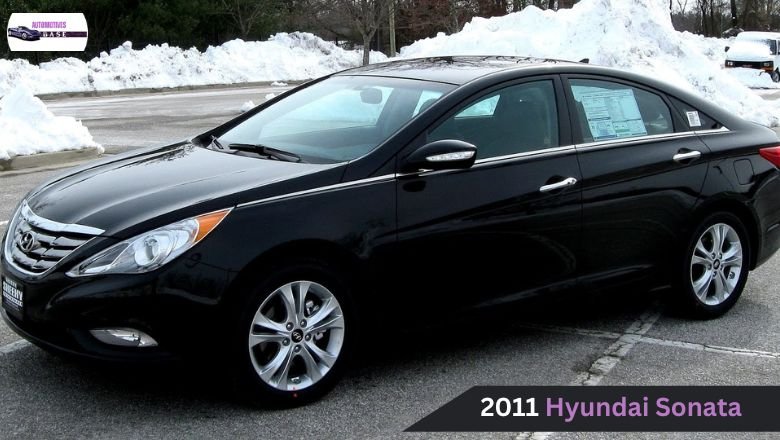
Potential buyers or current owners of a sixth-generation Sonata should conduct thorough checks via VIN lookup before making any purchasing decisions. This can help identify specific problems or recalls associated with a particular vehicle and assist in making an informed choice regarding maintenance or repairs.
The Best Year: 2014
The best year for the Hyundai Sonata is widely considered to be 2014. Owners reported minimal issues and recalls, making it a reliable choice. Powered by a 2.4L I4 engine, it strikes the perfect balance between performance and fuel efficiency. For those wanting more power, there was also a 2.0L turbocharged option available.
Performance dynamics were excellent in this model year, with the car delivering a smooth driving experience. The base engine offered an impressive average fuel economy of around 28 MPG combined (37 MPG for the hybrid).
The Blue Link system provides telematics services and entertainment choices, ensuring a connected and enjoyable journey. The safety, higher trim levels boast a rearview camera for enhanced visibility and blind-spot monitoring for added peace of mind.
The Worst Years: 2011, 2012, 2013
The worst years for the Hyundai Sonata were 2011, 2012, and 2013. During this time, owners reported numerous issues with these vehicles across various domains. The 2011 Hyundai Sonata limited significant problems with bearing wear, engine failures, and recalls related to brake line leaks and steering gear assembly.
In 2012 and 2013 Hyundai Sonata Limited experienced engine and suspension issues, including coil spring fractures. These years saw a high number of recalls and owner complaints due to problems such as vibrations, power steering loss, excessive oil consumption, and engine stalling, making them years to avoid for prospective buyers.
Best And Worst Hyundai Sonata Years, 7th Generation (2015–2019)
The Hyundai Sonata 7th generation, debuting in 2015, marked a significant shift towards sophisticated design and advanced features, solidifying its position as a formidable contender among midsize sedans.
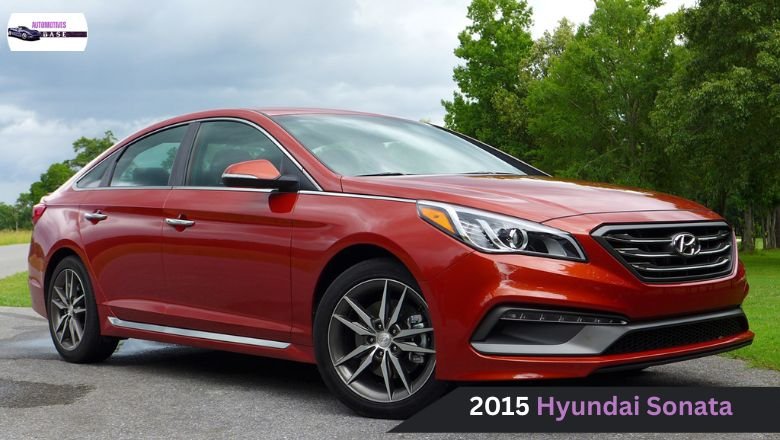
In the 2018 and 2019 models, Hyundai made notable strides in refining the Sonata’s performance, comfort, and overall appeal. These years are regarded as the best choices for consumers seeking a reliable and well-equipped sedan.
The Best Years: 2018, 2019
The 2018 and 2019 Hyundai Sonata models are considered the best years in this generation due to their reliability, advanced features, and improved build quality. These models offered a variety of powertrain options, including a fuel-efficient 2.4L I4 and more powerful turbo engine choices. With an impressive fuel economy averaging about 29 MPG combined, these Sonatas were both efficient and performance-driven.
Safety was paramount in these models, with features like lane-keeping assist, adaptive cruise control, and automatic emergency braking available. The interior received a significant upgrade in quality, featuring luxurious leather seats, a panoramic sunroof, and an 8-inch touchscreen with navigation. Apple CarPlay and Android Auto integration made the infotainment system seamless for smartphone users.
The 2018 and 2019 Sonata models offer a perfect blend of comfort, technology, and reliability that makes them highly recommended choices for buyers looking for a well-rounded sedan option.
The Worst Years: 2015, 2016, 2017
The worst seventh-generation Hyundai Sonata model years to avoid are 2015, 2016, and 2017. These years were plagued by a range of issues, like hybrid system failures, excessive oil consumption, and engine stalling.
The 2015 model had recalls for power steering loss, brake caliper fractures, and sunroof detachment. In the following years, problems with engine stalling, oil consumption, and power steering persistently cropped up. Hyundai Sonate recall safety components such as seat belts and brake calipers, raising concerns about reliability and safety.
Best And Worst Hyundai Sonata Years, 8th Generation (2020-Present)
The eighth-generation Hyundai Sonata, introduced in 2020, represents a bold evolution in design, technology, and performance within the midsize sedan category.
This iteration has garnered praise for its sleek styling and innovative features that elevate the driving experience. The model year 2020 is highlighted as one of the best for its groundbreaking design and features.
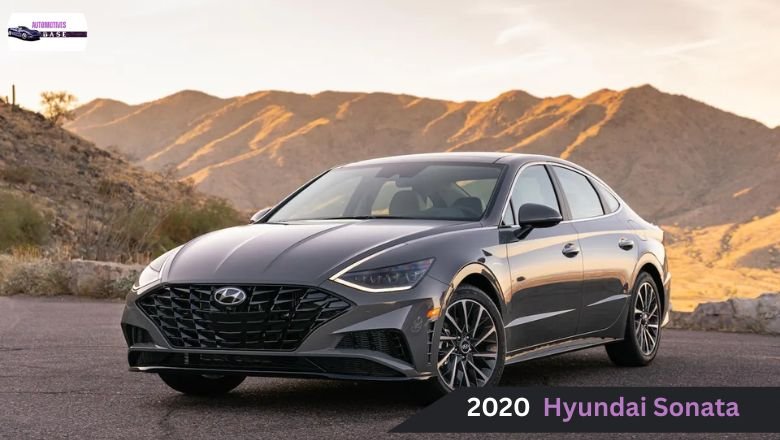
In 2021, Hyundai continued to impress with notable improvements in performance and technology integration. The year 2024 also stands out as a top choice due to enhancements made to refine overall driving dynamics.
The 2022 model year falls short in comparison to other eighth-generation Sonatas with regard to potential reliability issues.
The Best Years: 2020, 2021, and 2024
The 2020, 2021, and 2024 Hyundai Sonata models are known for their exceptional blend of innovation, reliability, and performance. With powertrain options including a 2.5L I4 engine and a 1.6L turbocharged engine, these Sonatas offer both power and efficiency.
They provide around 32 MPG combined fuel efficiency, making them stand out in the segment. Safety features such as forward collision-avoidance assist and lane-keeping assist come standard on these models.
Higher trims of the Sonata offer luxurious amenities like leather seating, panoramic sunroofs, and larger infotainment displays with enhanced connectivity features. Hyundai has integrated cutting-edge technology into these models, evident in features like the Digital Key and advanced driver-assist systems.
The Neutral Year: 2023
The 2023 model, with a dependable range of powertrain options and a continued focus on safety and technology, stayed true to its reputation. The Sonata excelled in delivering efficient performance, a cozy interior, and cutting-edge features that catered to modern demands.
The 2023 Hyundai Sonata stood out as a well-rounded vehicle that met the needs of drivers looking for reliability and comfort. Its commitment to safety was evident through the inclusion of advanced features designed to enhance security on the road.
The Worst Year: 2022
In 2022, the Hyundai Sonata faced a decline in ratings due to fuel leaks and drive power issues. Consumer Reports and Cars.com highlighted these concerns, prompting recalls for the model year.
Mechanical problems, such as consumer feedback, criticized the interior quality and infotainment system reliability of the 2022 Sonata. This year has drawn caution from potential buyers. Considering earlier or later model years may offer a more consistent and reliable ownership experience for those interested in the Hyundai Sonata.
Hyundai Sonata Resale Values
The resale values of the Hyundai Sonata vary across different model years, as shown in the graph.
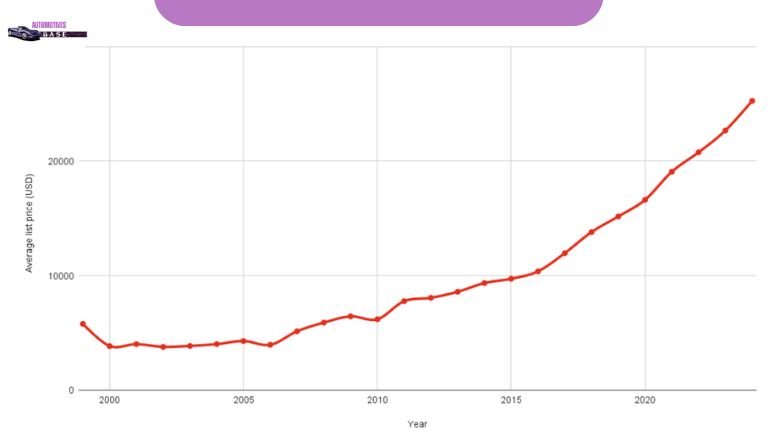
New Hyundai Sonata models tend to retain more value compared to older ones. This is due to factors such as advancements in technology, design updates, and improved performance over time. The graph provides a visual representation of how the resale value decreases as the vehicle gets older.
Potential buyers can use this information to make informed decisions when considering purchasing a used Hyundai Sonata.
Conclusion
The best and worst Hyundai Sonata years have seen their fair share of ups and downs, with certain models standing out as reliable choices while others face various problems.
The 2014, 2018, and 2019 versions have proven to be solid performers, offering a combination of quality and value that make them attractive options for buyers. The 2015, 2016, and 2017 models have been plagued by recurring problems that may deter prospective owners.
FAQ`s
What Was A Bad Year For The Hyundai Sonata?
A challenging year for the Hyundai Sonata was experienced in the model years of 2011–2012, as a troubling issue arose regarding engine failures. A lawsuit was filed against Hyundai, claiming that defective engines were being manufactured during this time period.
What Years Did The Hyundai Sonata Have Engine Problems?
Hyundai Sonata owners of the 2011–2014 model years experienced significant engine problems that led to premature and catastrophic failures. These issues prompted federal class action lawsuits filed by our attorneys on behalf of affected owners. The engine problems in these model years were particularly troublesome, causing numerous headaches for drivers.
Are Hyundai Sonata Years better than Honda Ridgeline?
Comparing Hyundai Sonata years to Honda Ridgeline is like comparing apples to oranges; they belong to different vehicle categories. The Sonata is a midsize sedan, while the Ridgeline is a pickup truck. Each excels in its respective segment, with the Sonata known for its fuel efficiency and comfort, while the Ridgeline is appreciated for its utility and versatility.

